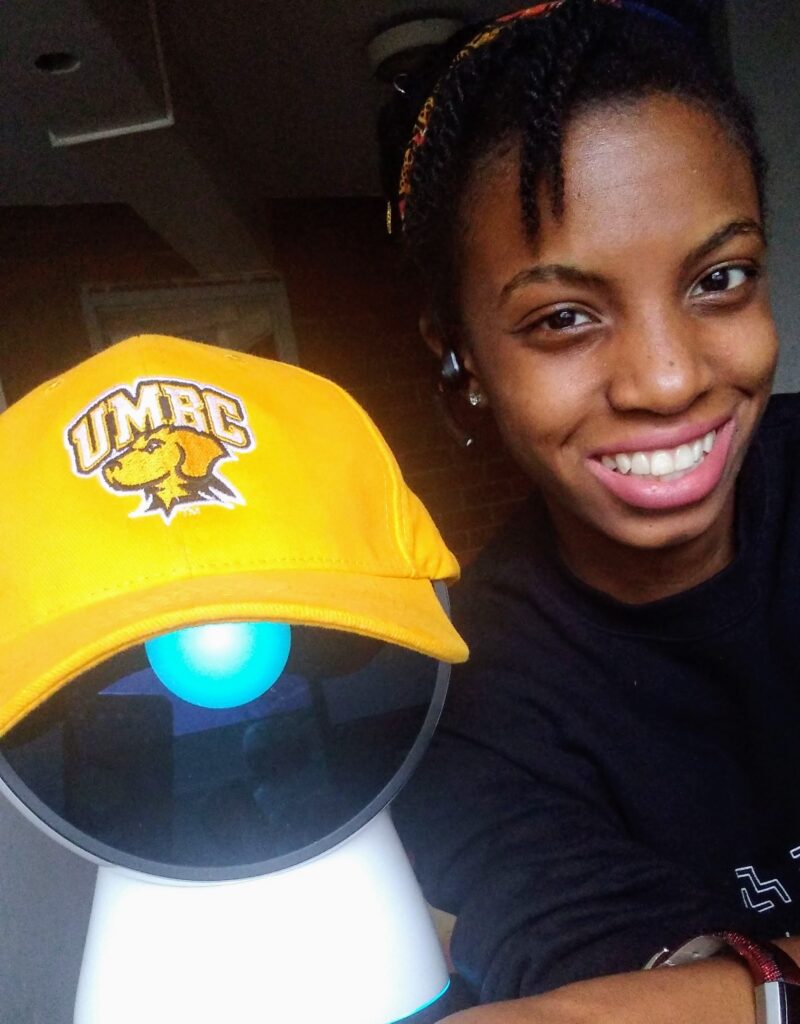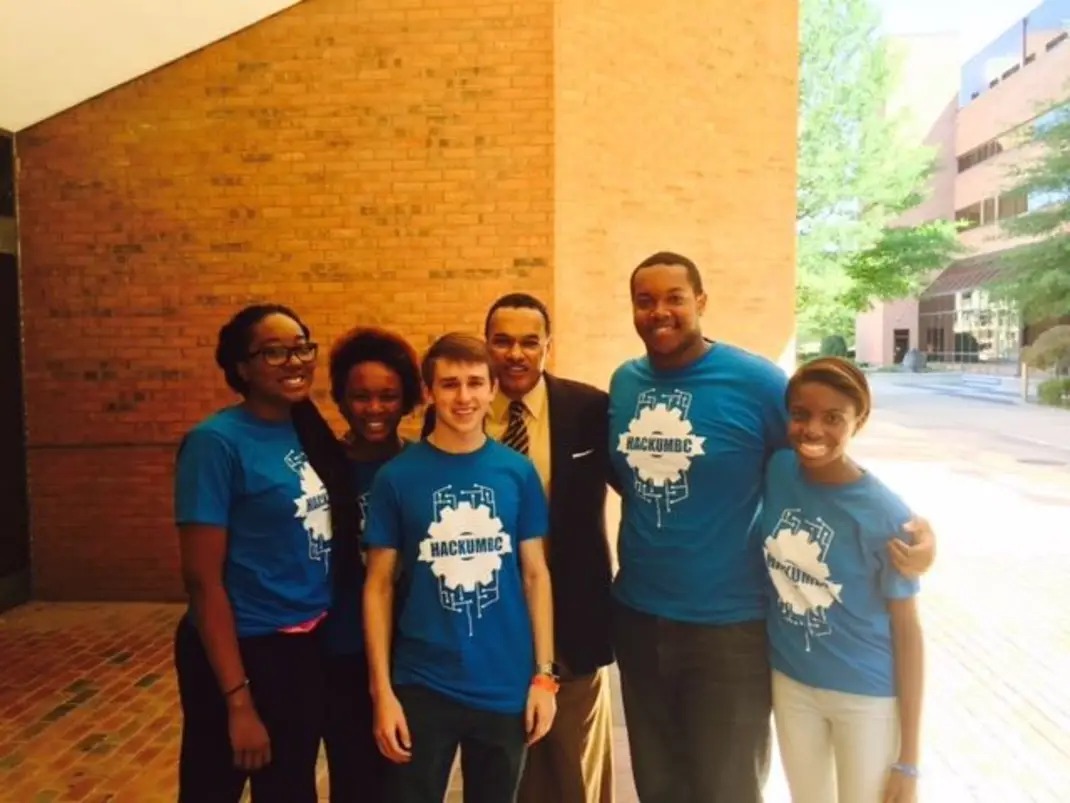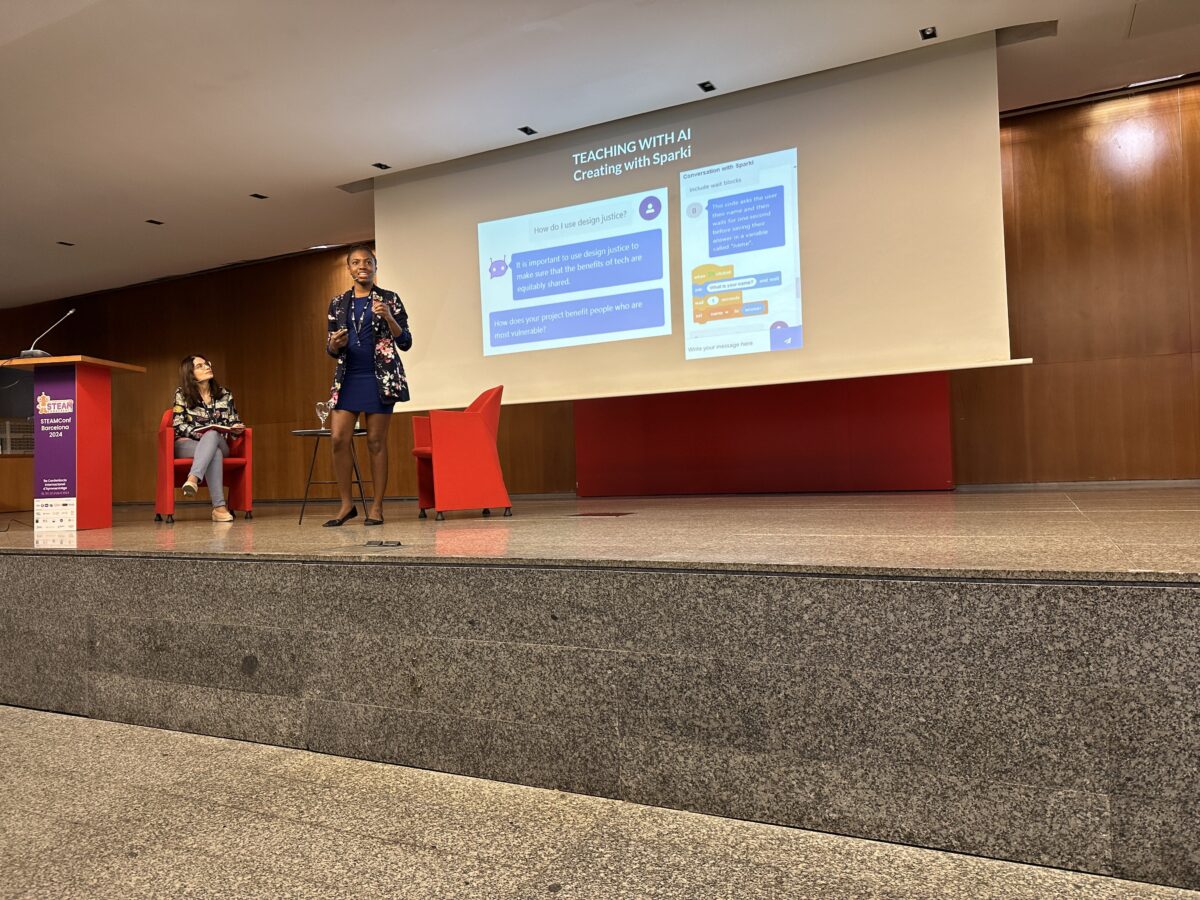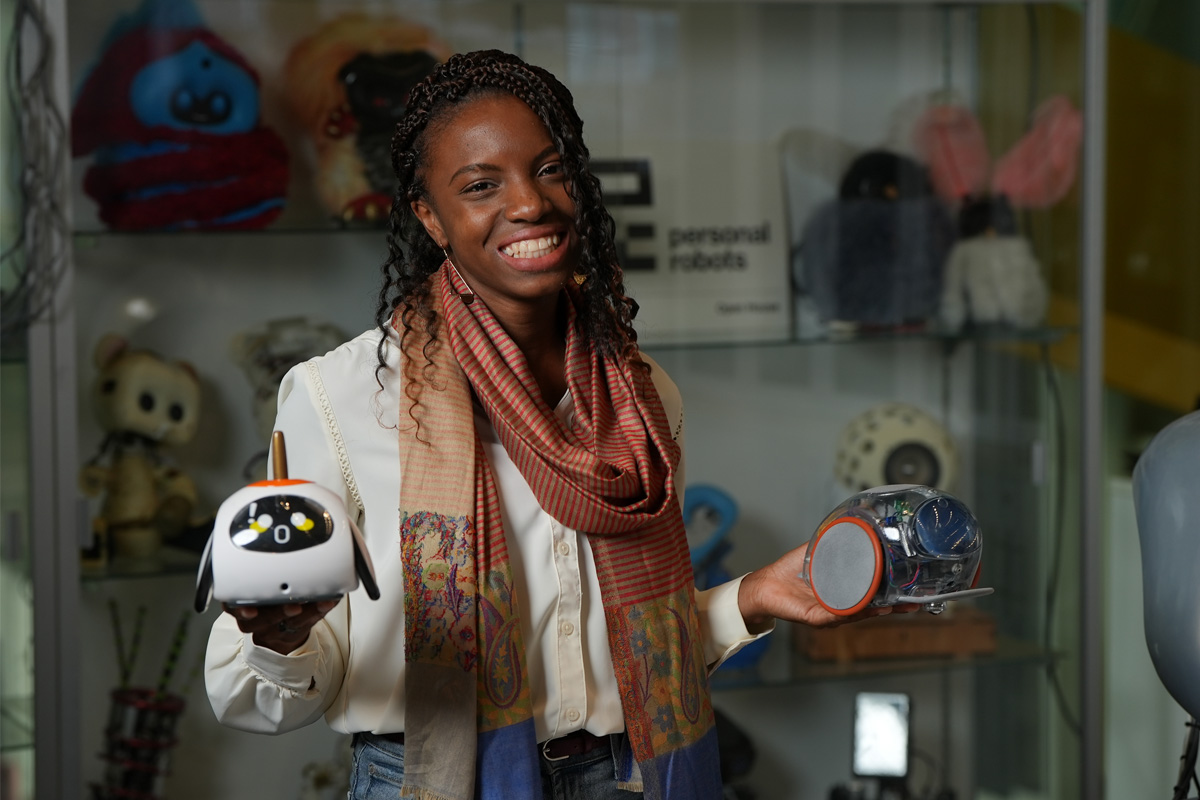
As a senior in high school in Prince George’s County, Maryland, Randi Williams ’16, computer engineering, was almost certain she was going to MIT for undergrad. Since middle school she’d had the understanding that MIT was the school “for people who want to build things,” and by spring of senior year she had already been admitted under early action. But fate had other plans.
Her mother had learned about UMBC’s Meyerhoff Scholars Program from a 60 Minutes segment that aired right around when Williams was applying to colleges. The nationally renowned Meyerhoff Scholars Program, founded in 1988, works to increase diversity among future leaders in science, technology, engineering, and mathematics by supporting students who intend to pursue a Ph.D. or combined M.D./Ph.D. in these fields.
Williams applied to the program and it was during an on-campus event for top Meyerhoff applicants that her mind began to change. She was impressed with the support and camaraderie the program offered. In the end, Williams opted to become a Retriever—and never looked back.
“If I hadn’t gone to UMBC, I don’t think I would have developed the leadership skills I did,” says Williams, who is returning to campus on April 16 as the keynote speaker for Undergraduate Research and Creative Achievement Day. “My mentors always encouraged me to speak up. I really benefited from that.”
Lifting others up along the way
At UMBC, Williams embraced myriad opportunities to learn and grow. She excelled in her classes, conducted research in the Mobile, Pervasive, and Sensor System Lab of Professor Nilanjan Banerjee, and was involved in the Meyerhoff Scholars, Honors College, and Center for Women in Technology communities.
“Randi’s work was noticeably excellent,” says Charles LaBerge, Ph.D. ’03, electrical engineering, a professor of the practice in the Department of Computer Science and Electrical Engineering who taught Williams in six different courses, from Intro to Engineering to her senior capstone, in which she and her team worked on underwater vision for a robotic sub. “Randi is always upbeat and friendly. Her capstone peers regarded her as a great teammate.”
In her sophomore year, Williams co-founded the hackUMBC student group with fellow Meyerhoff Scholar Perry Ogwuche ’14, computer science and mathematics, and organized the university’s first hackathon, a 24-hour competition where teams of students create innovative solutions to problems that matter to them. Using that experience, she also ran hackathons for youth in Baltimore, centered around issues of community safety and interactions with police.

Williams always wanted the people around her to succeed, and worked hard to lift everyone up, says her UMBC roommate of four years, Amreen Chadha ’16, financial economics: “I saw Randi pull all-nighters just to help her peers with studying and assignments that she had already completed.”
Throughout her time at UMBC, Williams stayed true to her passions and ideals, Chadha says. “Randi was always herself in the absolute best way: She was honest, thoughtful, caring, and all around great. If I had something on my mind, I was never afraid to be open with her. She balanced her school work and social life so well that it drove others around her to find the same balance.”
To MIT and beyond
After graduating summa cum laude, Williams did at last say “yes” to MIT, where she joined the Personal Robots Group at MIT’s Media Lab. She earned a master’s in media arts in sciences in 2018 and a Ph.D. in the same field in 2024. Williams studied how young children understand and interact with AI, and worked on tools and teaching methods to enable young learners to undertake their own AI-based projects. She developed robots, called PopBots, that can teach AI concepts to preschoolers through social interaction, and also developed a middle school AI and ethics curriculum used by thousands of teachers around the world called “How to Train Your Robot.”
Williams tells the story of one young student she met who wanted to become a doctor and was not, at first, particularly interested in AI. But through a project in Williams’ class the student developed an AI tool to translate when a doctor and patient don’t speak the same language. “This student was inspired by her own situation of translating for her mother in doctors’ offices, and she imagined an AI companion that could do the same,” Williams says.
Williams says the anecdote illustrates how she would like young people to see AI—as a tool to empower themselves and address the problems they see around them.

Making AI accessible for all
In the summer of 2026, Williams will head to Carnegie Mellon University in Pittsburgh to become an assistant professor in the Human-Computer Interaction Institute.
“Running my own research lab has been my dream for years,” Williams says.
Before beginning that next chapter, she is working as a research lead at Day of AI, a nonprofit organization spun out of MIT, with the mission of preparing K-12 students of all backgrounds and abilities to be successful, responsible, and engaged in an increasingly AI-powered society. The mission fits with Williams’ passion of making technology education accessible to everyone.
“AI is like a big wave approaching us. We can either put our heads in the sand and pretend it’s not coming, or we can ride the wave,” she says. “I want everyone riding the wave.”
Although pop culture often portrays AI as an adversary of humans, Williams prefers to focus on the collaborative potential.
“I tell my students, this is what AI can create—And I’ll make a small circle with my hands; this is what humans can create, and I’ll make a bigger circle; And, putting my arms out wide—this is what we can create together.”

